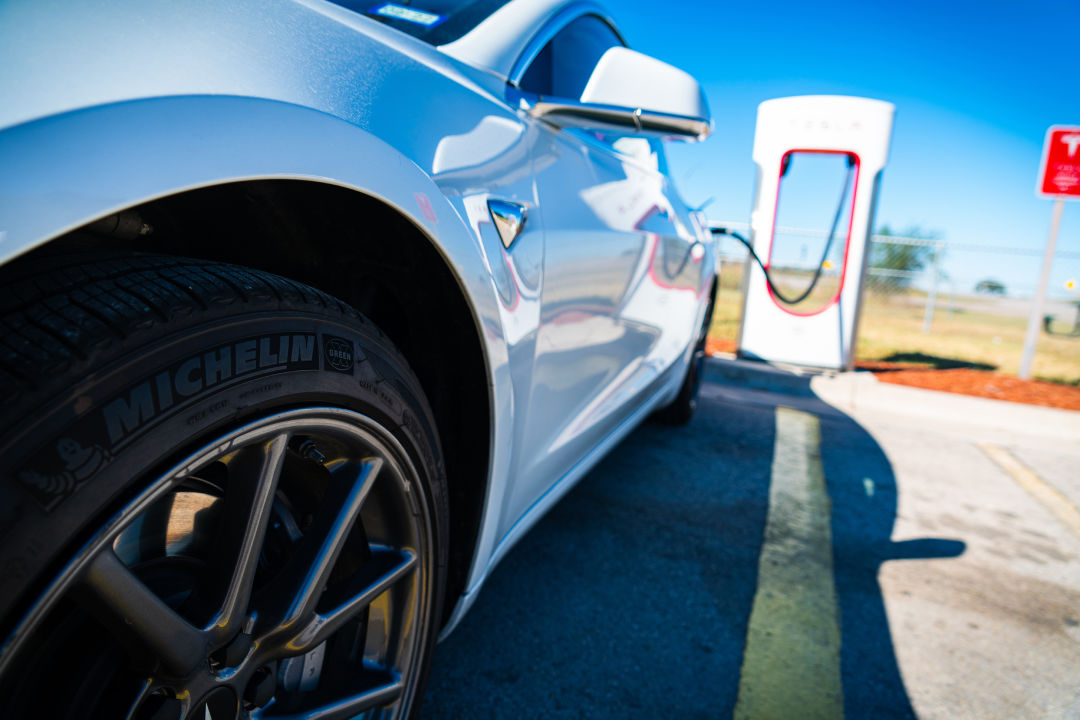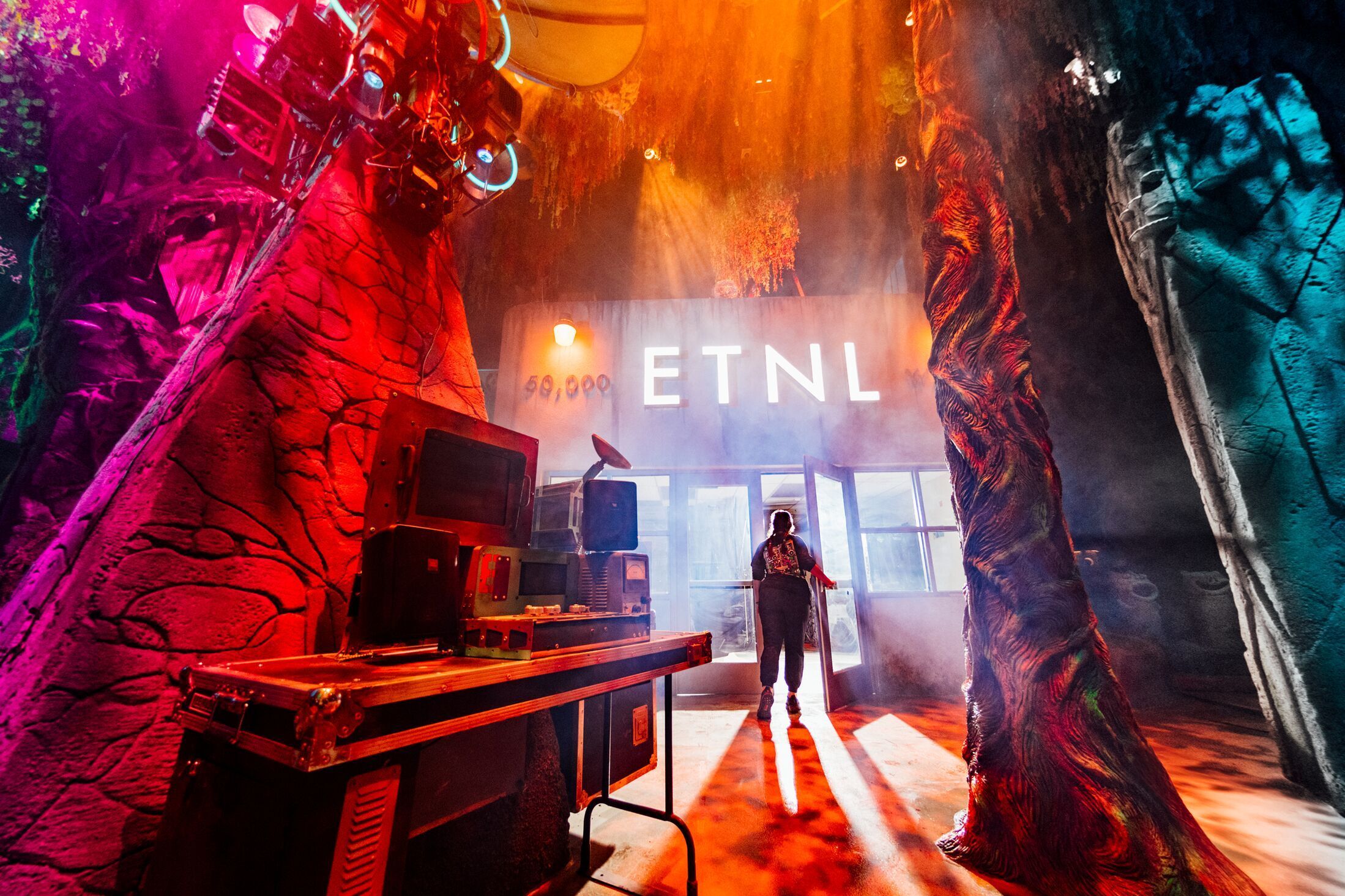Is Houston Ready for the Growing Electric Car Fleet?

While more Houstonians are ditching their traditional cars for EVs, there's not enough charging stations to go around.
In June, Whitney Dimplez Sonia, a recent transplant to Houston, found herself behind the wheel of a Chevy Bolt, her first experience with an electric vehicle (EV). Little did she know that this encounter would become a lesson in the challenges of the city’s growing EV market.
Sonia’s journey into the world of electric vehicles began almost serendipitously when she and her boyfriend were in desperate need of a rental car. “We were renting super last minute, and it was kind of like a lottery raffle type thing where you just take what’s available,” she explained. The result? A cute and quiet Chevy Bolt, which she decided would be her way of making a final call on permanently purchasing a battery-powered vehicle.
While Sonia enjoyed the smooth ride of the EV, her biggest struggle was with recharging. The city sprawl meant having to recharge daily, sometimes multiple times a day. With no at-home outlet, her quest for power led her to car dealerships, grocery stores, and gas stops where she found some options, but with limitations.
“Within a five-mile radius, I found a couple of stations but the problem was that they only had one [charger],” Sonia said. “For a couple of them, I found cars there already. Then by the time you get to the next [charging station], how long do I have to be here? It was the most inconvenient thing.”
Sonia’s experience is not an isolated one. Houston’s EV infrastructure has been a topic of discussion for some time now as the city tries to catch up with the growing popularity of electric vehicles. More people are going gasless to reduce their carbon emissions and noise pollution, save money on gasoline, and receive rebates and tax credits. But while places like Austin, Los Angeles, and San Francisco boast robust charging networks, Houston seems to be lagging.
According to Evolve Houston, a nonprofit organization working to accelerate the adoption of green automobiles within the city, the most populous metropolis in Texas has 460 power stations with about 1,000 outlets. Its data also shows that the number of EVs in the Greater Houston area now exceeds 10,000, and is growing daily. This means that there is about one public plug-in point per 1,000 electric cars making the rounds.
Casey Brown, the executive director and president of Evolve Houston, argues that part of the reason the city struggles to keep up with the demand is the rapid growth of the electric market in Houston, which he believes is partly spurred by the affordability of these cars.
“There’s a lot of new models and the average price of an EV has come down significantly,” Brown says. “We’re starting to see these major organizations start to figure out how to manufacture battery cells more efficiently and effectively. So, it creates a great opportunity for people to be open to trying something new.”
Many of the issues with Houston’s EV infrastructure come from the unavoidable nature of the long recharge times for these cars. According to the Department of Transportation, it takes about an hour or two to fully restore a battery from empty with level two connectors and about five to six hours with a level one outlet.
With more and more Houstonians choosing electric cars as their preferred mode of transportation, the existing battery network is struggling to keep pace. Older stations are not equipped to handle newer EV models. This, coupled with the long energy replenishment times, makes the process even harder than it already is.
This was a particular issue Nema Kebbeh, a Houston-based researcher, encountered frequently when he used a Polestar as an Uber driver. Kebbeh would utilize Electrify America, a public charging network with stations around the city, as they were one of the few companies with outlets for his kind of vehicle.
“There was about two weeks where there was only two out of the seven charging stations that were working,” Kebbeh says. “You can imagine how long people are waiting at that point. Someone might be waiting there for like two hours. What I had to do at that point was wait ’till like 2 a.m. to charge my car.”
Kebbeh adds that using electric vehicles, especially non-Tesla models, could be a major hurdle for many rideshare drivers in Houston due to the limited and sparse options for repowering available.
The issue with plug-in accessibility also poses a problem for individuals who live in homes where they are unable to install energy stations or alter their parking spaces, such as apartments and multi-family units. As the production and adoption of electric cars continue to increase, Brown ponders: “If all of Houston was electrified, what would that look like from an infrastructure standpoint?”
Despite the challenges arising from the shortage of sufficient EV infrastructure, numerous Houston residents are taking initiatives to enhance the accessibility to the broader community. Among them is John Willis, a local entrepreneur whose business, the Charge Car, offers a mobile power rescue generator designed exclusively for electric cars. This portable solution becomes a lifeline for individuals who find themselves stranded without power. The generator provides level two power at a rate of roughly 1.5 miles of range per two minutes, offering users valuable additional time to locate and reach a nearby charging station.
Nevertheless, for many, the environmental benefits of EVs outweigh the inconveniences posed by energy accessibility. Organizations like Evolve are actively working to make the city electric-ready as swiftly as possible; Brown says the overarching goal is to prepare Houston for the EV revolution by 2030, including ramping up charging stations to meet the needs of EV owners. As the city grapples with these evolving challenges, inventive solutions are like sparks of hope on the electric highway.




